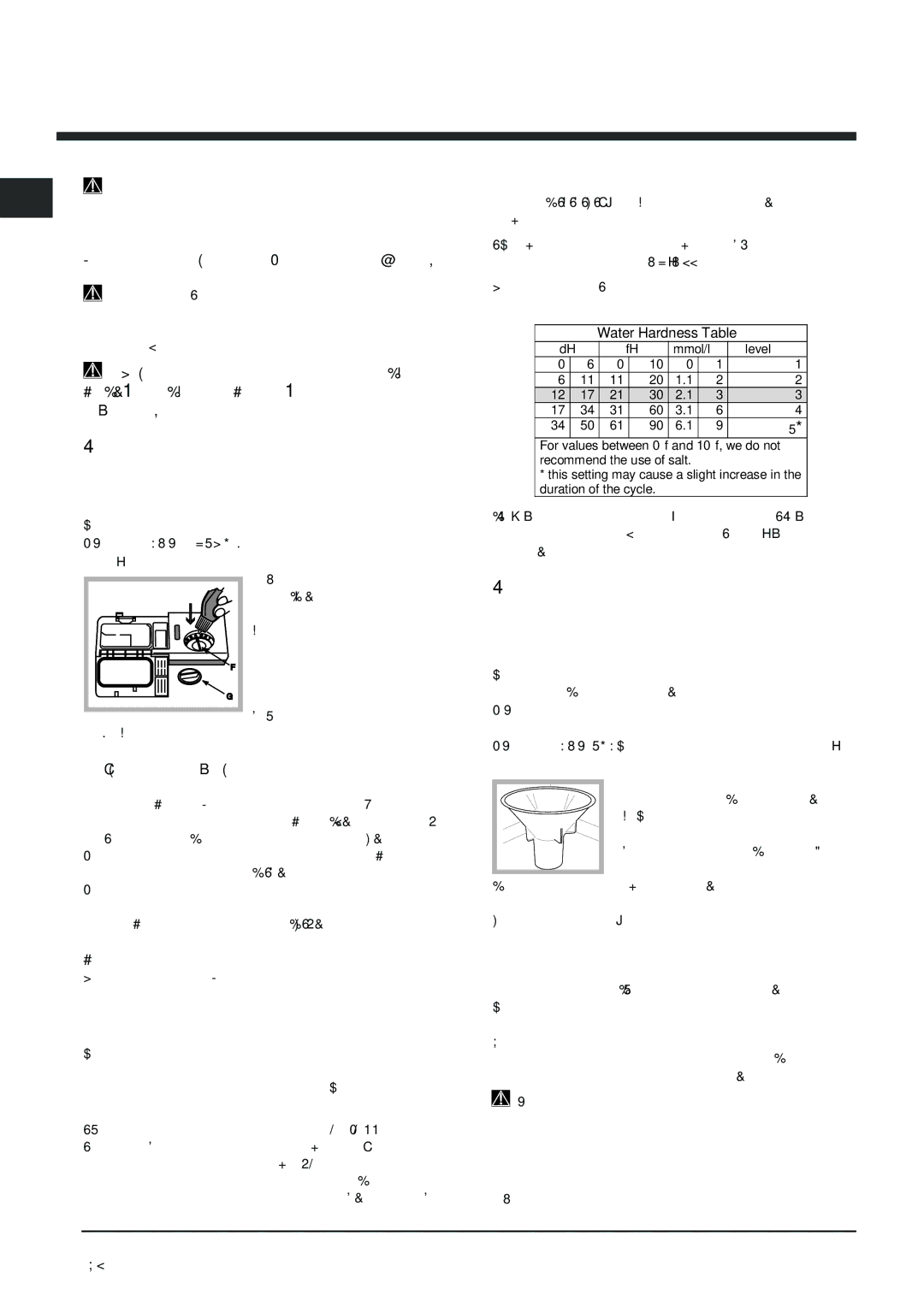IDP 148 specifications
The Indesit IDP 148 is a versatile built-in dishwasher that delivers an impressive combination of performance, efficiency, and user-friendly features, making it a popular choice for households seeking reliability in their kitchen appliances. With its sleek design, the IDP 148 blends seamlessly into modern kitchens, ensuring that functionality does not compromise aesthetics.One of the standout features of the Indesit IDP 148 is its ample capacity. The appliance can accommodate up to 13 place settings, making it well-suited for both small and large families or even for entertaining guests. This spacious interior means fewer loads and more time spent enjoying your meals instead of cleaning up afterwards.
Efficiency is another hallmark of the IDP 148, as it boasts an A+ energy rating. This level of efficiency ensures that it consumes less energy while delivering optimal cleaning results, contributing to reduced utility bills and a smaller carbon footprint. The dishwasher also employs advanced water-saving technologies, allowing users to enjoy the convenience of a dishwasher without worrying about excessive water usage.
The IDP 148 is equipped with multiple wash programs tailored to various needs, including intensive cycles for heavily soiled pots and pans, eco modes for energy conservation, and quick wash functions for when time is of the essence. These flexible options allow users to select the perfect cycle for their dishwashing needs, ensuring sparkling clean results each time.
In terms of user convenience, the dishwasher features an adjustable top basket, providing added flexibility when loading larger items. The racking system is designed to accommodate different types and sizes of dishes, making the loading process both efficient and hassle-free. Additionally, the IDP 148 is designed with a noise level of just 49 dB, ensuring a quiet operation that fits seamlessly into any home environment.
The Indesit IDP 148 also includes a delay start option, allowing users to set the dishwasher to run at a more convenient time, which can be particularly beneficial for those on busy schedules.
In conclusion, the Indesit IDP 148 is a feature-rich, reliable appliance that meets the demands of modern households. With its combination of capacity, efficiency, flexibility, and user-friendly technologies, it stands out as a solid choice for those seeking a built-in dishwasher that performs well while fitting perfectly into their kitchen decor.

